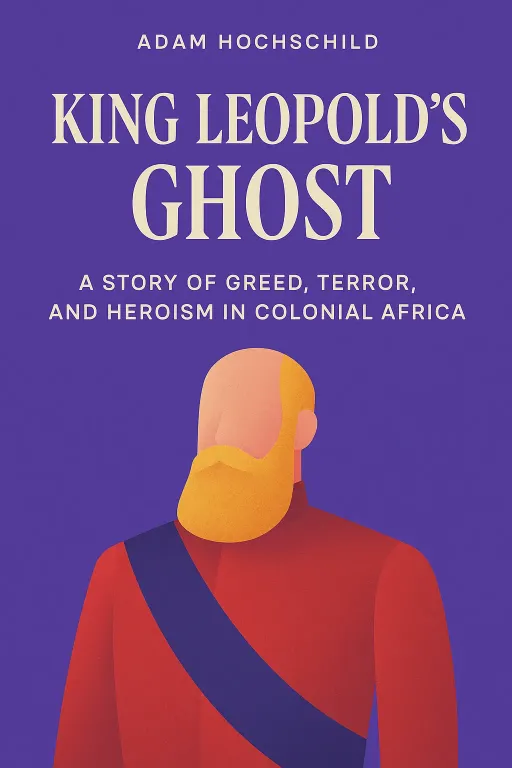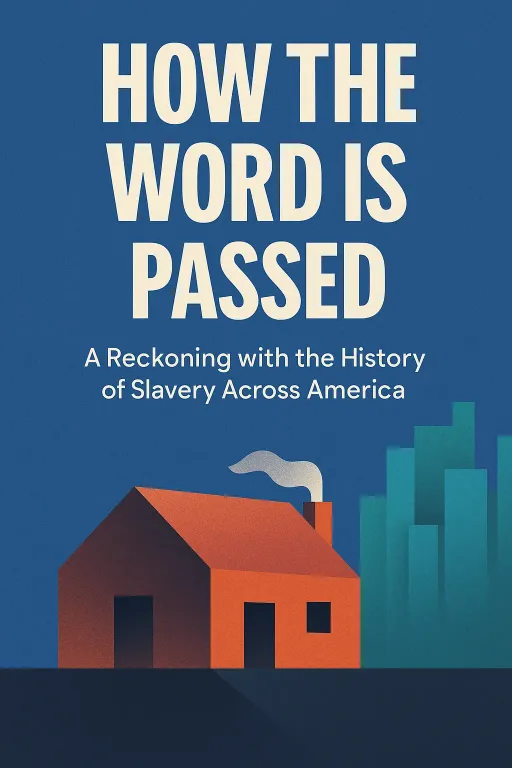
King Leopold's Ghost
10 minA Story of Greed, Terror, and Heroism in Colonial Africa
Introduction
Narrator: In the late 1890s, a meticulous shipping clerk named Edmund Dene Morel, working at the docks in Antwerp, Belgium, noticed something deeply unsettling. Day after day, ships arrived from the Congo Free State, their hulls overflowing with immensely valuable cargo—rubber and ivory. But when these ships turned back to Africa, they carried not trade goods, but soldiers, firearms, and ammunition. There was no exchange, only extraction. Morel realized with dawning horror that this imbalance could only be explained by one thing: slave labor. This single observation by an ordinary man would ignite the 20th century's first great international human rights movement. The story of how this system of terror was built, and how a handful of courageous individuals fought to expose it, is meticulously documented in Adam Hochschild's landmark book, King Leopold's Ghost: A Story of Greed, Terror, and Heroism in Colonial Africa.
The Philanthropic King and the Magnificent African Cake
Key Insight 1
Narrator: The architect of this horror was a man who presented himself to the world as a great humanitarian: King Leopold II of Belgium. Trapped in an unhappy marriage and feeling constrained by his role as the monarch of a small European nation, Leopold was consumed by a single obsession: acquiring a colony. He saw colonies not as a responsibility, but as a source of immense personal wealth and power. He once complained to an adviser, "Belgium doesn't exploit the world. It's a taste we have got to make her learn."
To achieve his goal, Leopold knew he couldn't act as a conqueror. Instead, he cloaked his ambition in the language of charity and progress. In 1876, he hosted a grand Geographical Conference in Brussels, inviting the world's most famous explorers and geographers. He delivered a masterful speech, declaring his intent "to open to civilization the only part of our globe which it has not yet penetrated, to pierce the darkness which hangs over entire peoples." He assured the attendees that his motives were not selfish. This conference led to the creation of the International African Association, a supposedly philanthropic organization with Leopold as its chairman. In reality, it was a front, a brilliant piece of public relations that allowed him to pursue his private goal of carving out a personal empire. He confided his true intentions in a letter, stating his fear of "losing a fine chance to secure for ourselves a slice of this magnificent African cake."
The Explorer as an Instrument of Conquest
Key Insight 2
Narrator: To claim his slice of the cake, Leopold needed an agent on the ground, and he found the perfect man in the famed explorer Henry Morton Stanley. Stanley, born an illegitimate child in a Welsh workhouse, was a man driven by a relentless need to reinvent himself and achieve greatness. After his celebrated mission to find Dr. Livingstone, Stanley was hired by Leopold. His task was to establish a presence in the Congo basin, build a transport route, and, most importantly, secure treaties with local chiefs.
Under Leopold’s orders—"The treaties must be as brief as possible...and in a couple of articles must grant us everything"—Stanley set about his work with brutal efficiency. He became known to the local people as "Bula Matadi," the Breaker of Rocks. His methods were harsh; he used a private army, flogged his porters with a dog-whip, and viewed the Congolese as little more than "soldier-laborers." The treaties he secured were masterpieces of fraud. Chiefs, often illiterate, were presented with documents in a foreign language and offered trinkets, cloth, or bottles of gin. In exchange, they unknowingly signed away their land, their resources, and their sovereignty to Leopold's association. Through Stanley's work, Leopold acquired a private colony 76 times the size of Belgium, not for his country, but for himself.
The Birth of a Human Rights Movement
Key Insight 3
Narrator: The system Leopold built was a machine of pure extraction. To meet ever-increasing rubber quotas, his agents in the Congo created a reign of terror. Villages were forced into labor, women and children were held hostage to ensure the men would venture into the dangerous forests to collect rubber, and those who failed to meet their quotas were brutally punished. The most infamous punishment was mutilation; agents of Leopold’s Force Publique would cut off the hands of victims as proof that they had not wasted their bullets.
It was this system that Edmund Morel, the shipping clerk, had uncovered. Quitting his job, he launched a one-man crusade. He started his own newspaper, the West African Mail, and began publishing a torrent of articles, pamphlets, and books, combining meticulous research with moral fury. His work soon attracted the attention of the British government. In 1903, they dispatched their consul, Roger Casement, to investigate. Casement, an Irish-born veteran of Africa, traveled deep into the Congo's interior. He interviewed victims, counted hostages, and documented the horrors. His official report, though censored by the British Foreign Office to remove the most graphic details, confirmed everything Morel had been saying. The two men met and formed a powerful alliance, establishing the Congo Reform Association and turning their fight into an international cause.
The First Heretic and the Power of Witness
Key Insight 4
Narrator: Before Morel and Casement, another man had seen the truth and dared to speak it. George Washington Williams, a Black American Civil War veteran, pastor, and historian, traveled to the Congo in 1890. He had initially admired Leopold, hoping the Congo could be a place of opportunity for Black Americans. What he found instead was "the Siberia of the African Continent."
Horrified, Williams penned a blistering "Open Letter" to King Leopold, a document that stands as one of the great early critiques of colonialism. He detailed the deceptive treaties, the forced labor, the kidnapping of women, and the state's direct involvement in the slave trade. He accused Leopold's regime of committing "crimes against humanity," one of the first known uses of the phrase in its modern sense. Leopold's machine immediately went to work to discredit Williams, attacking his character and credentials. Though Williams died of illness just a year later, his letter was a foundational text for the reform movement that would follow, proving the immense power of a single, courageous witness.
The Great Forgetting and the Enduring Legacy
Key Insight 5
Narrator: The international pressure mounted by Morel, Casement, and their allies eventually became too much for Leopold to bear. In 1908, he was forced to sell his private colony to the Belgian state. But before he did, he made sure to profit handsomely from the deal and, crucially, to erase the evidence of his crimes. For a full week, the furnaces of the Royal Palace in Brussels burned day and night, destroying the vast majority of the Congo state's archives.
This act of destruction ushered in what Hochschild calls "The Great Forgetting." For decades, Belgium and the wider world largely ignored the atrocities. The Royal Museum for Central Africa in Belgium, built with Congo profits, presented a sanitized history of a civilizing mission. The death toll, estimated by modern demographers to be as high as 10 million people—a 50% reduction of the population—was forgotten. The exploitation continued under Belgian rule and, after independence in 1960, morphed into the kleptocratic dictatorship of Mobutu Sese Seko, a ruler who mirrored Leopold's greed and cruelty. It was only through the tireless work of a few historians, like the retired Belgian diplomat Jules Marchal, that the full truth was painstakingly pieced back together from the ashes of Leopold's bonfire.
Conclusion
Narrator: The single most important takeaway from King Leopold's Ghost is that a system of mass murder and enslavement, on the scale of the Holocaust, was successfully perpetrated and then almost completely erased from historical memory. It was driven by the greed of one man but enabled by the silence and complicity of the world's great powers.
The book serves as a chilling reminder of the dangers of unchecked power and the seductive power of propaganda. It challenges us to ask what "great forgetting" might be happening today. What atrocities are we choosing to ignore, and who are the modern-day Morels, Casements, and Williamses trying desperately to make us see the truth?









